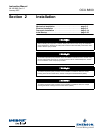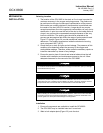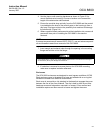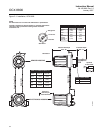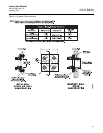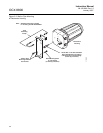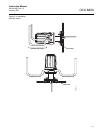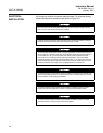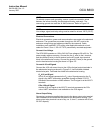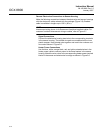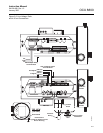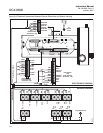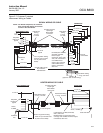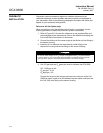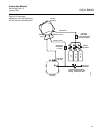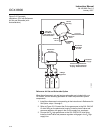
Instruction Manual
IM-106-880, Rev 1.0
January 2007
2-9
OCX 8800
NOTE
To maintain proper earth grounding, ensure a positive connection exists
between the sensor housing, the electronics housing, and earth. The
connecting ground wire must be 14 AWG minimum. Refer to Figure 2-5.
NOTE
Line voltage, signal, and relay wiring must be rated for at least 105ºC (221ºF).
Electrical Connections
Electrical connections, power and communications are made to the electronic
enclosure. The connections are made through two 3/4 NPT ports in the
enclosure using fittings and cables provided by the customer. Cable
installation must meet NEC, IEC and/or other applicable national or local
codes for Class I, Zone 1, IIB +H2 T3/T6 permanently mounted equipment.
Connect Line Voltage
The OCX 8800 operates on 100 to 240 VAC line voltage at 50 to 60 Hz. The
power supply requires no setup. Connect the line (L wire) to the L terminal,
and the neutral (N wire) to the N terminal on the AC power input terminal
block in the electronics housing. Connect the ground (G wire) to the ground
stud in the electronics housing as shown in Figure 2-5.
Connect 4-20 mA Signals
Connect the 4-20 mA current loop to the 4-20 mA signal output terminals in
the electronics housing as shown in Figure 2-5. Use individual shielded
twisted wire pairs. Terminate the shield at the electronics housing.
O
2
4-20 mA Signal
One 4-20 mA signal represents the O
2
value. Superimposed on the O
2
signal is the HART information accessible through a Model 275/375
Handheld Communicator or AMS software. The O
2
signal is at the AOUT 1
terminals.
COe 4-20 mA Signal
Another 4-20 mA signal at the AOUT 2 terminals represents the COe
value. HART information is not available on the COe signal.
Alarm Output Relay
Connect any customer-supplied relay input to the alarm output relay terminal.
Use shielded wire and terminate the shield at the electronics housing. The
alarm output relay terminal is a set of dry, no. 2, form C, contacts with 30 mA,
30 VDC capacity.



